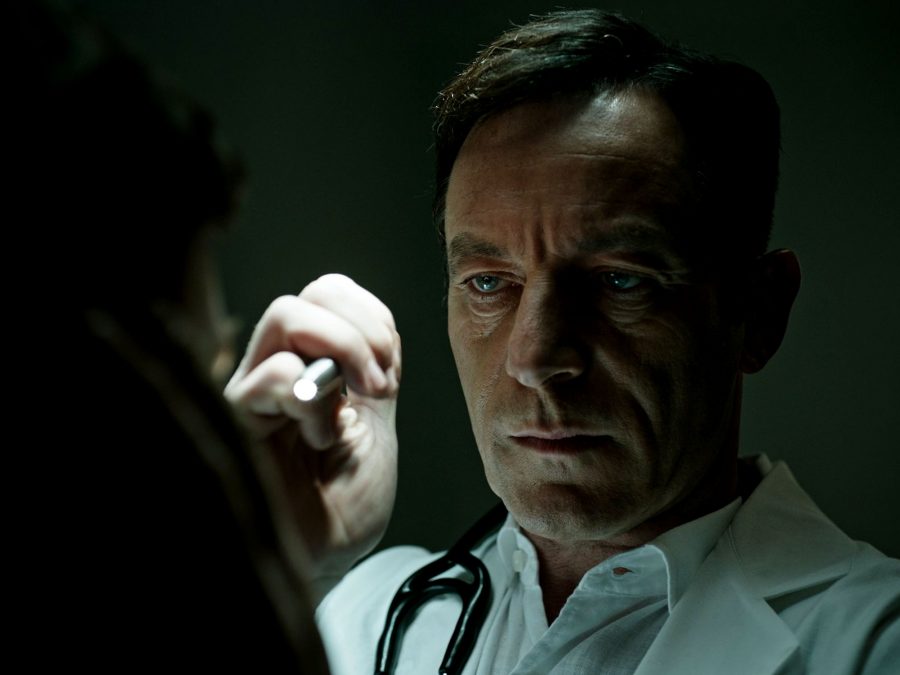Gore Verbinski’s macabre asylum thriller offers an intoxicating blend of mystery and surrealism.
“Who the hell takes the waters in the 21st century anyway?” The speaker is an executive in a New York financial firm whose CEO Roland Pembroke (Harry Groener) has gone AWOL to a sanatorium in the Swiss Alps.
On the eve of a merger worth billions, the company receives a letter from Pembroke in which he declares that he has seen the light, recognising at last the sickness of his past life, and that he has no intention of ever coming back. So the firm sends its most ambitious and driven deal closer, Lockhart (Dane DeHaan), to go fetch the boss.
Lockhart’s journey begins in a modern steel-and-glass metropolis, but he soon finds himself in the old world of Europe, in a remote castle that looks as though it belongs in a snow globe, or perhaps a gothic fairy tale. After a car accident he becomes stuck in this Shangri-La, which none of the elderly residents – all former corporate climbers and empire builders like Pembroke – shows any desire to leave.
Left to wait for his leg-cast to be removed, Lockhart explores his environs, goes looking for Pembroke, and befriends ‘special case’ Hannah (Mia Goth), a girl who is the only other patient in the place below retirement age. Yet as he succumbs to the water cure administered by charming Dr Heinrich Volmer (Jason Isaacs) and his staff, Lockhart too is confronted with the vanities and traumas of his past, even as the place gradually reveals a dark history of its own. There is definitely something in the water…

At once a mystery, a melodrama and a musing on mortality, Gore Verbinski’s A Cure for Wellness blends gothic style with asylum thrills, as well as the director’s trademark mannered surrealism. There are so many nods and winks here: the danse macabre of Suspiria; the unorthodox treatments of A Clockwork Orange; the universal monstrosity of ‘The Phantom of the Opera’, ‘Dracula’ and ‘The Invisible Man’; and most prominent of all, the embedded paranoia of Shutter Island (with DeHaan channeling Leonardo DiCaprio). Yet this old-fashioned world, with its outmoded cures, also neatly encapsulates and distils our abiding 21st century aspirations and anxieties.
Right from its opening scene in which a middle-aged businessman, working at night in his plush high-rise office, suddenly collapses from a heart attack, the film focuses on the obsession with money making and the attainment of hierarchical status – in other words the once American, now Globalised Dream – as a vain attempt to stave off the inevitability of death.
The letter which Pembroke sends to the company may seem like the ravings of an old man who has lost his mind, but it is also a reasoned critique of every value towards which Lockhart and his colleagues have directed their lives. Yet the Alpine clinic, despite its constant promises of rejuvenation and wellness, is itself a kind of mausoleum, festooned with the symbols (sagging, decrepit flesh and rotting teeth) of memento mori. And its leadership is no less cutthroat, exploitative and ruthlessly vampiric than those heads of industry back in New York.
Ancient or modern, some things never changed, and the well-heeled can no more be cured of their mortality than anyone else. In the end, youth wins out. As it always does, however temporarily. But it is also smiling through false teeth as it, like everything and everyone, heads slowly downhill.
Published 22 Feb 2017
Always love Gore Verbinski’s way with visual weirdness.
More mannerist surrealism for the mainstream.
Exquisite gothic trappings, timeless fairy tale grue, and several sips of mortality.